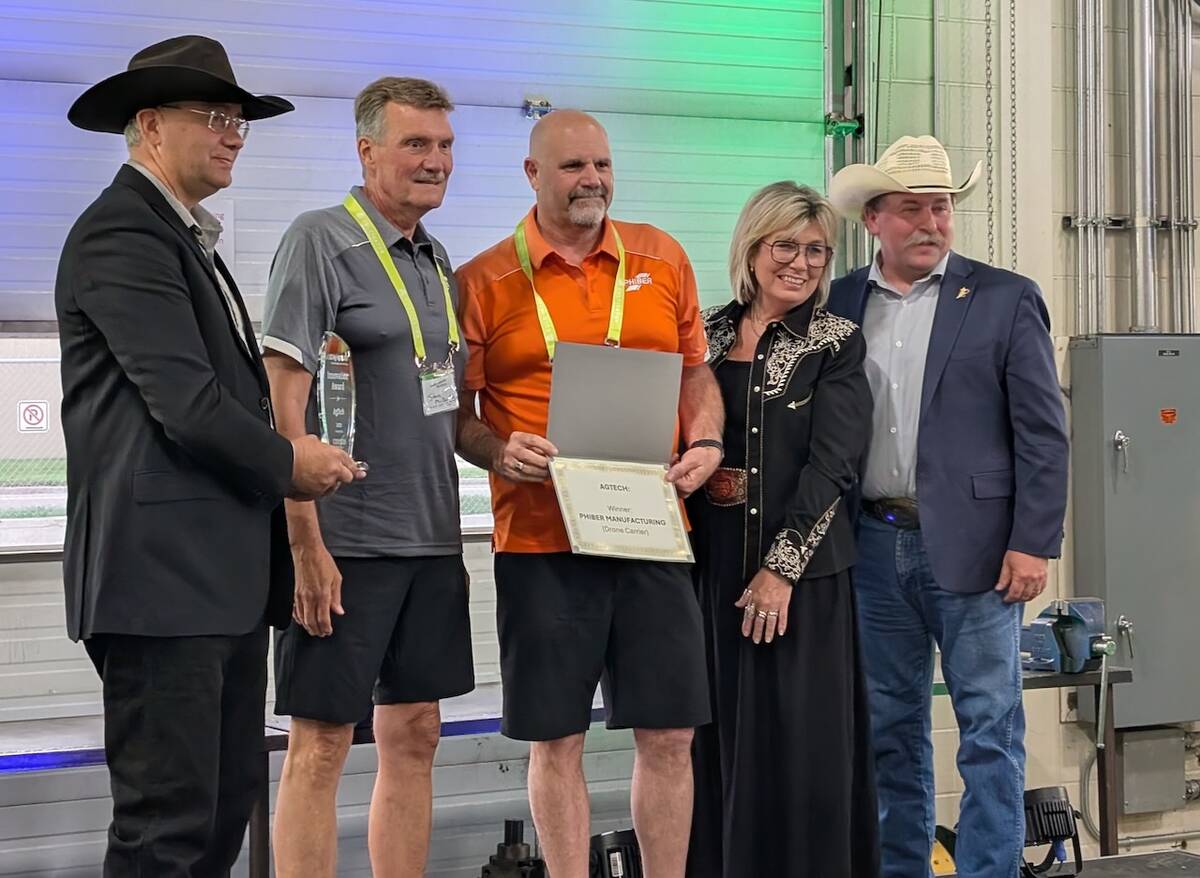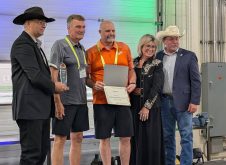AIRDRIE, Alta. – The economic impact on Canadian beef and pork producers was immediate when the United States passed its mandatory country-of-origin labelling rule in September 2008.
Packers had competitively bid on Canadian hogs and cattle before COOL’s passage, but feedlots, hog finishers and processors now have to separate imported livestock from domestic animals so they can be tracked and labelled as foreign product all the way to retail. Only animals born, raised and slaughtered in the United States can carry the Product of the U.S. label.
Read Also

Ag in Motion innovation awards showcase top 2025 ag technology
The 2025 Ag in Motion Innovation Awards celebrated winners across five categories: agronomics, agtech, business solutions, environmental sustainability and equipment.
The World Trade Organization ruled Nov. 18 that the U.S. law violated international trade rules. The U.S. has 60 days to appeal the decision.
Separating imports from domestic livestock was expensive and many Americans preferred to avoid the extra hassle.
Feeder cattle exports dropped by nearly half in 2008-09 and hog exports fell 59 percent.
“The damage has been done,” said Canadian Pork Council chair Jurgen Preugschas.
He encouraged the Americans to negotiate to mitigate the dispute and get the North American business back onto a competitive footing with the rest of the world.
“People and families have gone out of business solely because of this rule,” he said at a news conference on Soderglen Ranches near Airdrie, Alta.
“We have lost over five million hogs in live exports into the U.S.”
No hard numbers exist on the cost to the Canadian red meat sector, but it has been estimated millions of dollars were lost when exports dropped. There were also added costs to transport animals to a limited number of American plants willing to accept foreign livestock.
The Canadian Cattlemen’s Association estimated producers lost $80 to $100 per fed steer or heifer when COOL was first implemented. The law eventually became more flexible and the costs dropped, but CCA president Travis Toews said that may also have been linked to a tighter supply of cattle to process.
“Here in the last few months we have had a basis in the high teens, which should never happen,” he said.
“U. S. packers should be lowering that basis, but it is COOL that is preventing them from doing so.”
Doug Price said COOL had a tremendous impact on his family’s company, Sunterra Farms, which produces lamb, pork and beef.
The company’s Ontario division was unable to ship weaner pigs to the United States, where the animals were finished and slaughtered.
It also affected prices in Canada because fewer bidders were willing to buy Canadian cattle, said Price, who is president of the Alberta Cattle Feeders Association.
Some packers said they would kill imported animals only one day per week, and they often paid much less for Canadian animals because of the added costs.
“In cattle for instance, there are 200 different pieces in a steer that go all over and you have to trace them,” Price said.
“If I was a packer, I would take a hard look at that and say, ‘let’s just buy U.S. unless I can buy that Canadian stuff cheaper.’ ”
He said the WTO ruling was positive, but he is anxious for action.
“We are always so impatient, and rightfully so. Now we have won that, we carry on to the next step, next step, next step. It’s a great announcement, but how long does it take? All of us are wondering how long that is.”
The rule stays in place until the U.S. makes a decision, and Price said that dependence on the American market is a lingering problem.
“It really drives home in my mind and in our association’s mind that we have to diversify our marketplace globally,” he said.

















